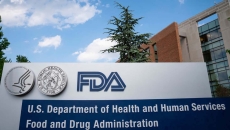FDA Pre-Cert Program
David Rosen, a partner and public policy lawyer at Foley & Lardner, discusses the agency's recently wrapped Software Precertification Pilot Program and what it means for the future of digital health regulation.
Companies planning an upcoming De Novo or 510(k) submission for their software medical device are eligible, but participation will not yield precertification.
While key details are still missing, the picture that's emerging is surprisingly restrictive
FDA Comissioner Dr. Scott Gottlieb announced a new Digital Health Innovation Action Plan, Pre-Cert Test Plan for 2019 and a Working Model.
The results to our poll about the FDA program prompt questions about the program's fairness to companies big and small.
In the last year the FDA has taken steps to evolve its process for regulating software as a medical device, personal genomics and clinical decision support technology.
